Sidhak Verma
Myself Sidhak I am a student and a content writer. I share my ideas on social media and finding ways of earning money online on the internet.
An offline password manager is an application designed to securely store login details and other sensitive data and all the data is...
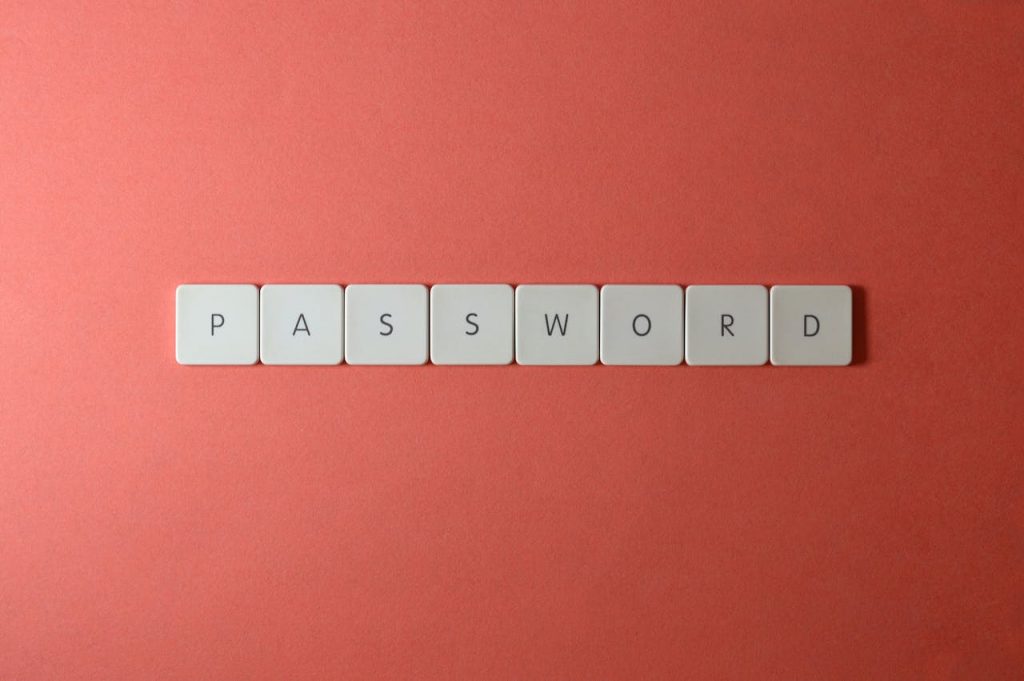
Image Credits: pexels
An offline password manager is an application designed to securely store login details and other sensitive data and all the data is stored locally on the user’s device. This can be beneficial because the data is not vulnerable to online attacks, such as hacking or data breaches.
Password managers may include password generation tools, which can help users create strong and unique passwords for each of their accounts, as well as tools for organizing and categorizing passwords and securely sharing passwords with others. Some offline password managers also have additional features, such as storing other sensitive information, such as credit card numbers or notes.
Using an offline password manager can help users protect their online accounts by using strong and unique passwords. Choosing a reputable password manager with a strong security track record is essential to ensure that your data is adequately protected.
There are many reasons available to use an Offline password manager
Overall, an offline password manager can provide several benefits to help users securely manage and protect their login credentials and sensitive data.
There are several types of offline password managers available, including:
The choice of offline password manager type will depend on the user’s needs and preferences.
KeepassXC is an open-source, cross-platform offline password manager designed to store and manage login credentials and other sensitive data in a secure and encrypted way. It is based on the KeePass password manager and adds additional features and improvements.
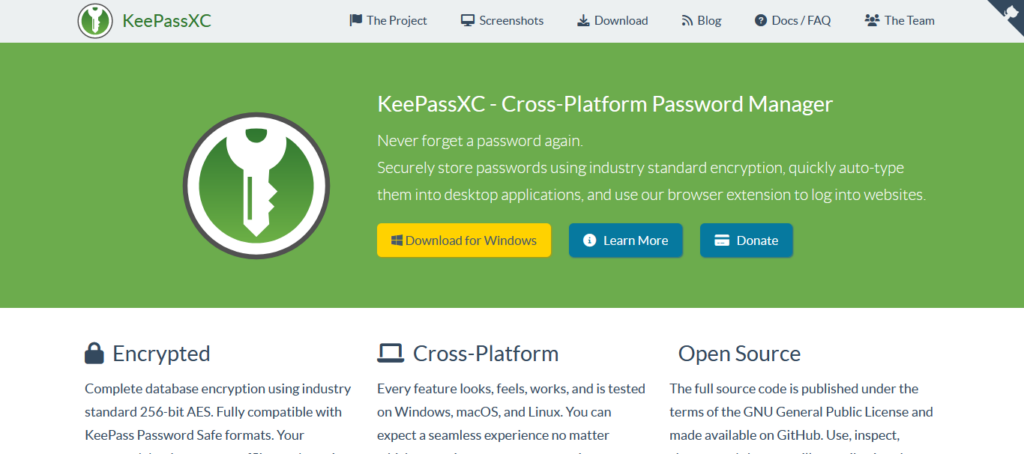
It has a password generator tool that can help users create strong and unique passwords, and it also has tools for organizing and categorizing passwords.
KeepassXC uses robust encryption algorithms to protect the data it stores. It also has many security features, such as a password strength meter and a feature that allows users to add a layer of protection by using a key file.
1Password is known as the best password manager to store all important passwords in an encrypted way. It is available for various platforms, including Windows, macOS, iOS, and Android, and it has several features to help users securely store and manage their passwords.
1Password has a password generator tool that can help users create strong and unique passwords, and it also has tools for organizing and categorizing passwords.
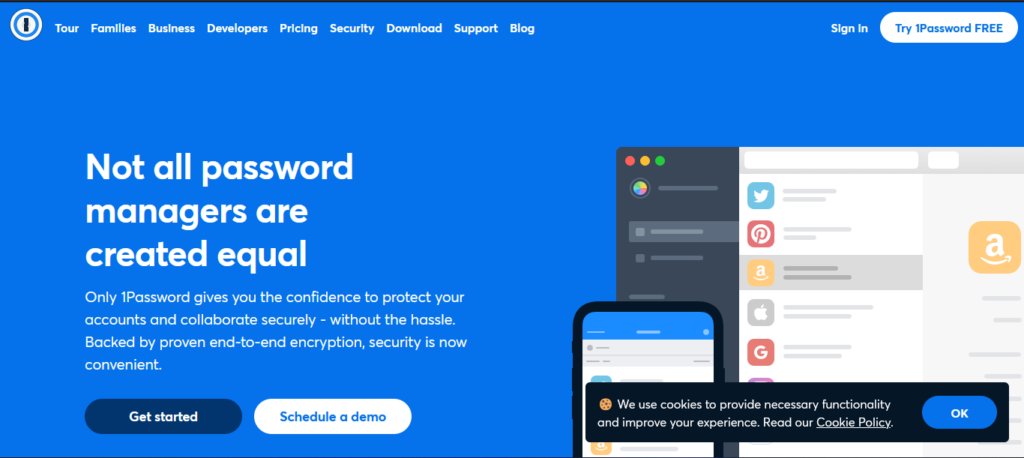
1Password uses robust encryption algorithms to protect the data it stores. It also has some security features, such as two-factor authentication and a feature that allows users to add layer protection using a security key.
KeeWeb is a well-known password manager. It is based on the KeePass password manager application. It can automate the login process for various accounts and has a feature that allows users to share passwords with other people securely.
KeeWeb cares about its user’s data and protects their private data and passwords. It also has many security features, such as two-factor authentication.
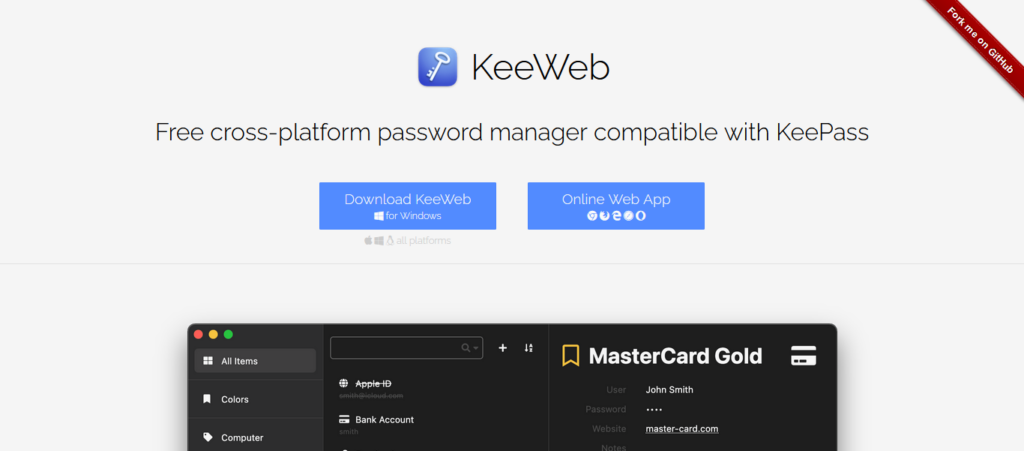
KeeWeb is available for various platforms, including Windows, macOS, and Linux, and as a web app, it has a user-friendly interface that is easy to use. Overall, KeeWeb is a popular and well-regarded password manager. That can be a helpful tool for helping users store and login credentials.
Enpass is one of the most used password manager apps which protects its user’s data and stores their login credentials and other sensitive data in a secure and encrypted way. It is available for various platforms, including Windows, macOS, Linux, iOS, and Android. And it has several features to help users securely store and manage their passwords.
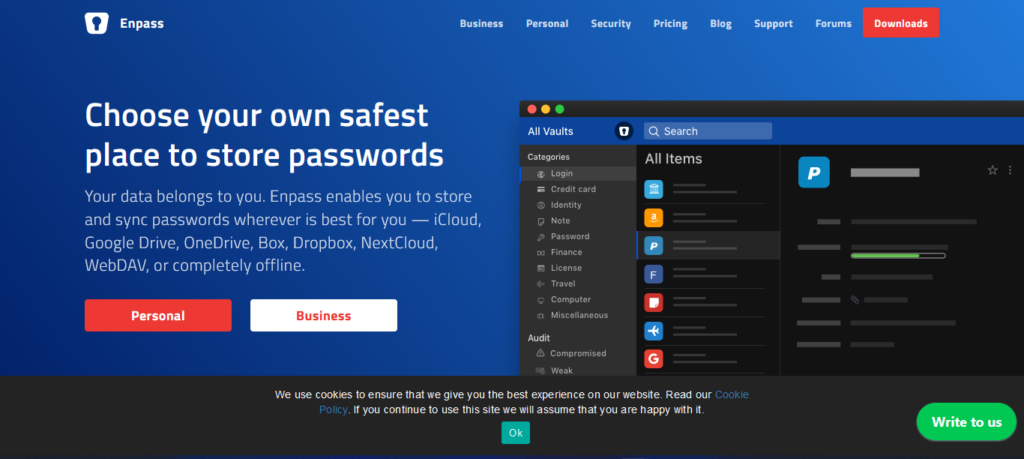
Enpass uses robust encryption algorithms to protect the data it stores. It also has several security features, such as two-factor authentication and a feature that allows users to add layer protection using a security key.
Dashlane is a password manager and online security platform that allows users to store and manage their login credentials, personal information, and payment details in a secure digital wallet. With Dashlane, users can generate strong, unique passwords for all their online accounts, and store and fill in their login credentials automatically across all of their devices.
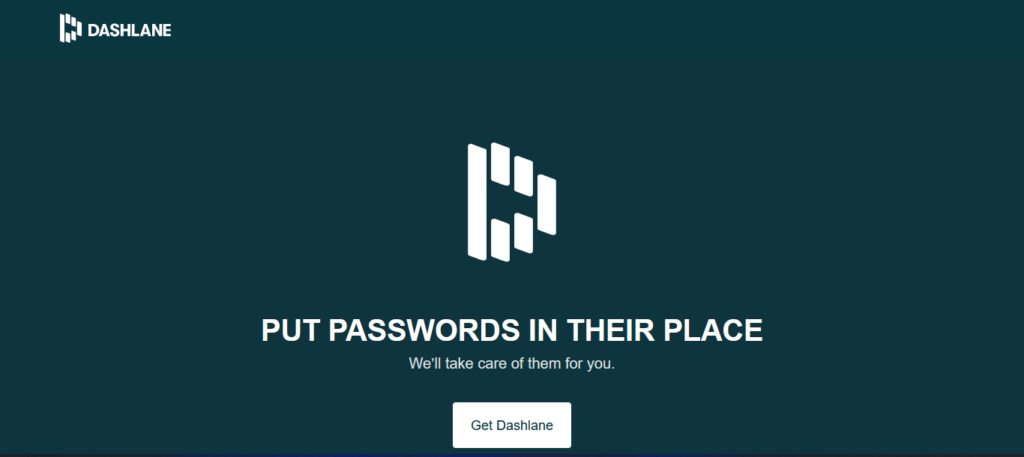
Dashlane also includes a password changer feature. Which allows users to update their passwords across multiple accounts and has a security breach alert feature. Which informs users if any of their accounts have been compromised in a data breach.
Keeper Password Manager is the best application to protect your passwords and manage your login information, personal information, and payment details. It is designed to make it easy for users to create and manage strong, unique passwords for all their online accounts and to protect their sensitive information with advanced security features.
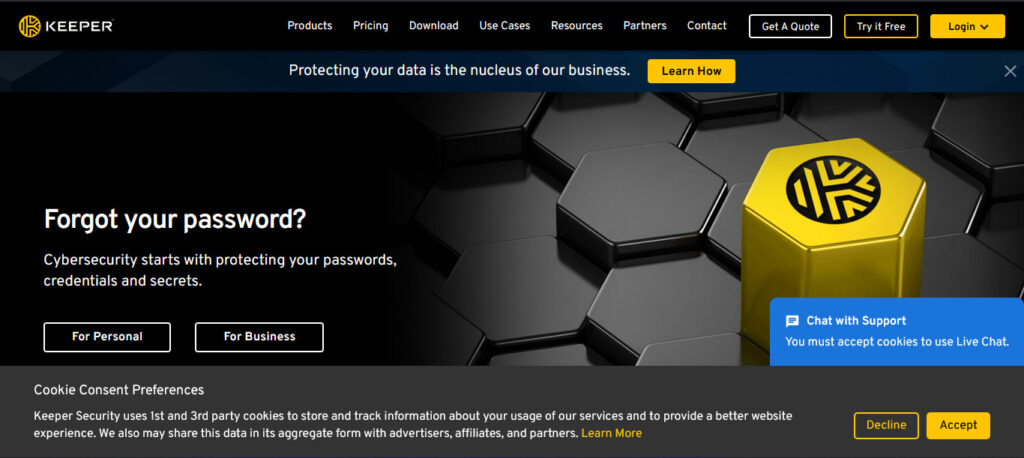
By using Keeper, users can avoid the risk of using weak or reused passwords, which can be easily guessed or hacked, and can instead use strong, unique passwords for each of their accounts, which can help to protect them against cyber threats such as identity theft and account takeover. In addition to password management, Keeper also offers a variety of other security features, such as a secure digital vault for storing sensitive documents, a security breach alert feature, and dark web monitoring, which can help users to protect their personal and financial information online.
RoboForm is an offline password manager and online form filler that helps users store and manage their login credentials, personal information, and payment details in a secure digital wallet. With RoboForm, users can generate strong, unique passwords for all their online accounts, store and fill in their login credentials automatically across all of their devices, and protect their sensitive information with advanced security features such as two-factor authentication and secure sharing.
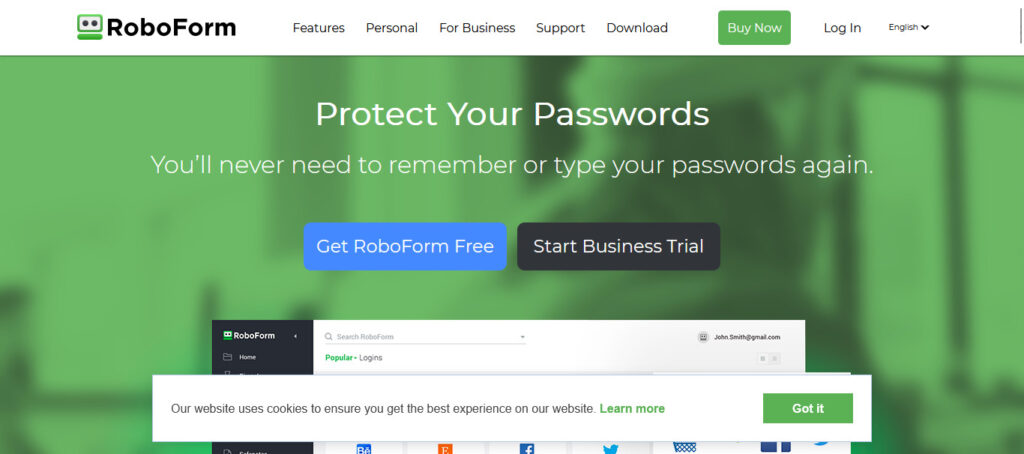
RoboForm also includes a password changer feature, which allows users to update their passwords across multiple accounts with just a few clicks, and a security breach alert feature, which informs users if any of their accounts have been compromised in a data breach. In addition to password management, RoboForm also offers a variety of other features, such as a form filler, which allows users to automatically fill in online forms with their personal information, and a bookmark manager, which helps users organize and manage their bookmarks.
RoboForm uses robust encryption algorithms to protect the data it stores.
Password Safe is a free, open-source offline password manager that allows users to store and manage their login credentials, personal information, and other sensitive data in a secure digital wallet. It helps users to create and manage strong, unique passwords for all their online accounts and protect their sensitive information with advanced security features. With Password Safe, users can create an encrypted database to store their login credentials, protected by a master password. They can then use the password manager to automatically fill in their login credentials across their devices. And update their passwords across multiple accounts with just a few clicks. In addition to password management, Password Safe also offers a variety of other security features. Such as support for two-factor authentication and secure sharing.
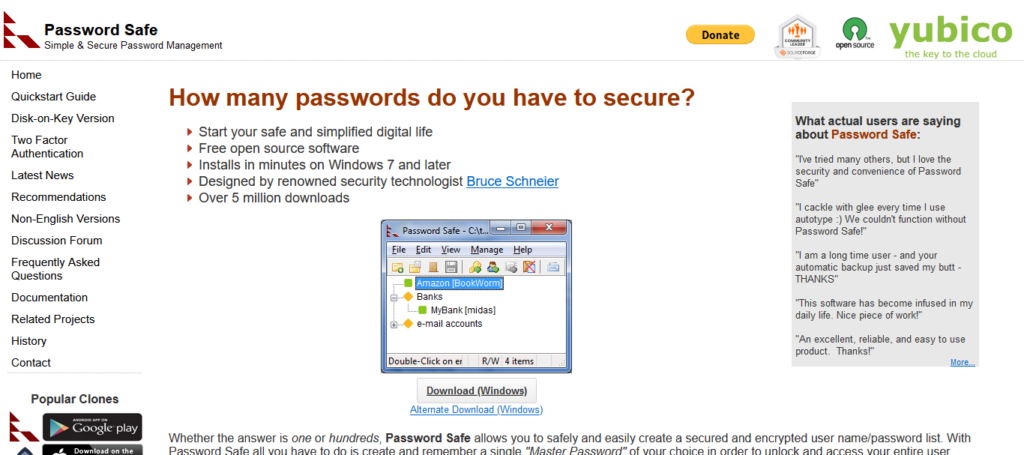
Bitwarden is the best password manager which stores all login details in a secure way. It is available for various platforms, including Windows, macOS, Linux, iOS, and Android. It has several features to help users securely store and manage their passwords.
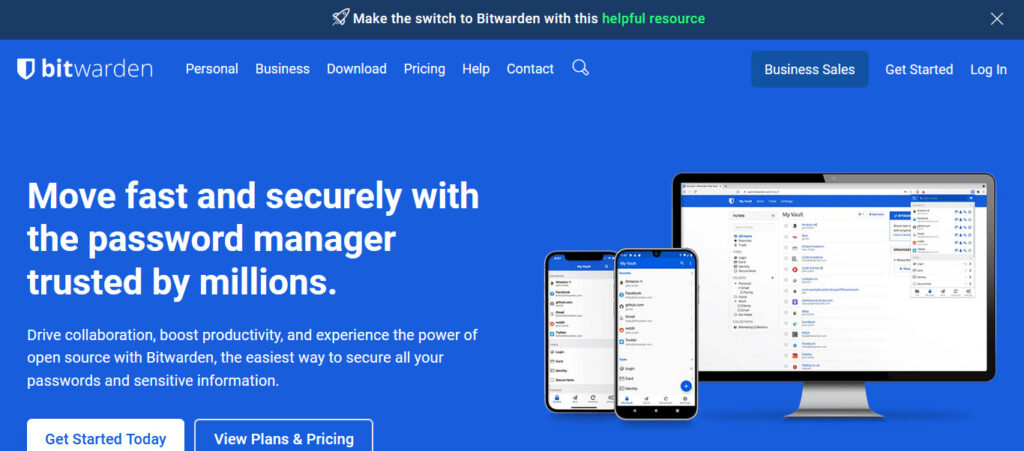
Bitwarden uses robust encryption algorithms to protect the data it stores. It also has many security features, such as two-factor authentication and a feature that allows users to add layer protection using a security key.
NordPass comes in the list of the best offline password managers. And it is designed to help users create and manage strong, unique passwords for all their online accounts. And protect their sensitive information with advanced security features.
With NordPass, users can generate strong, unique passwords for all of their accounts, store and fill in their login credentials automatically across all of their devices, and protect their sensitive information with features such as two-factor authentication and secure sharing.
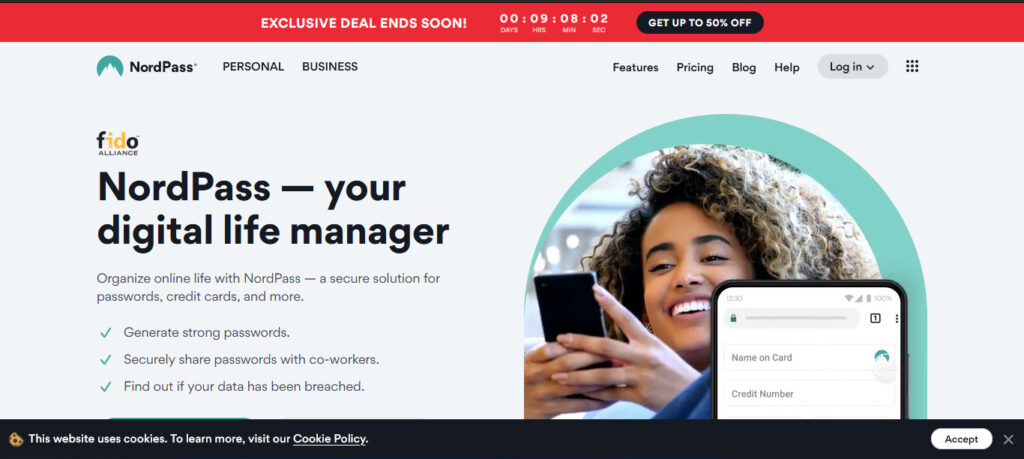
NordPass also includes a password changer feature, which allows users to update their passwords across multiple accounts.
In addition to password management. NordPass also offers a variety of other security features, such as a secure digital vault for storing sensitive documents and dark web monitoring. Which can help users to protect their personal and financial information online.
So here’s the list of the best offline password managers. You can use these apps to protect information. We have tried to provide you with what is an Offline password manager? And a list of Password Managers. I hope this list helps you.
Suggested:
How To Reset Windows Password With Ubuntu?